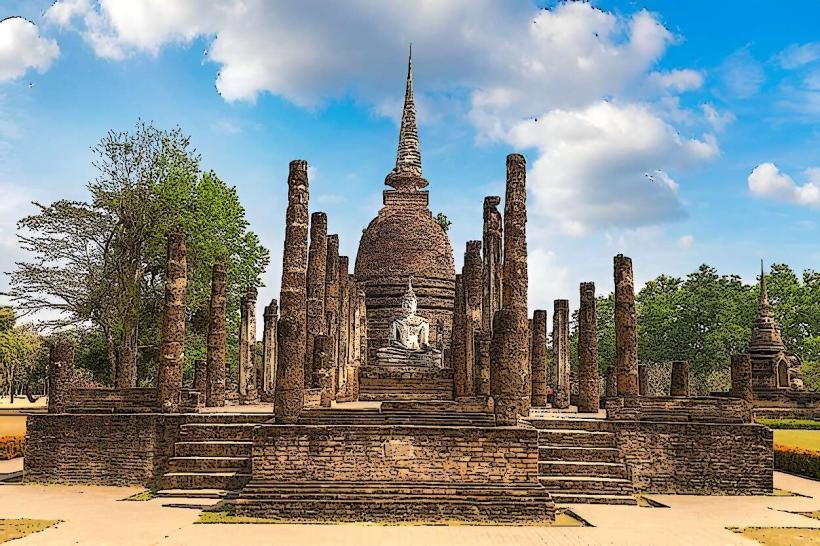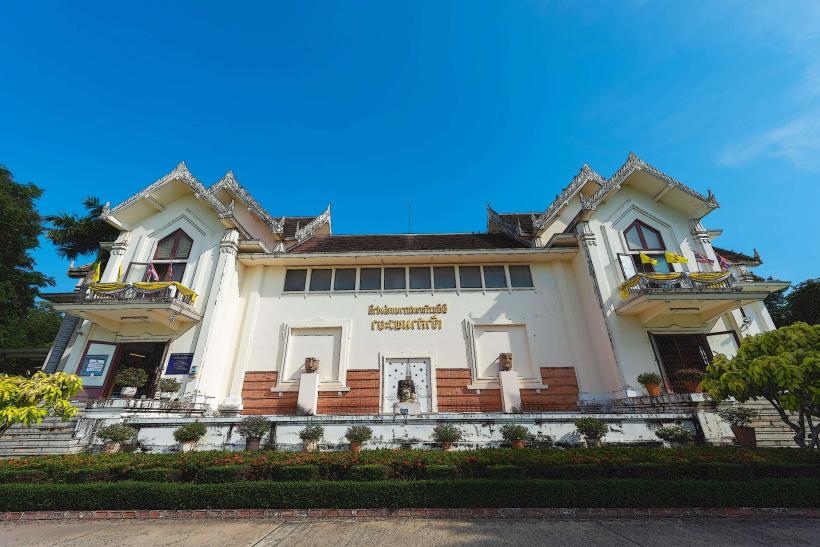Information
Landmark: Sukhothai Historical ParkCity: Sukhothai
Country: Thailand
Continent: Asia
Sukhothai Historical Park, Sukhothai, Thailand, Asia
Sukhothai Historical Park is an archaeological site containing the ruins of the former capital of the Sukhothai Kingdom. It is located in the Mueang Sukhothai District of Sukhothai Province, Thailand.
Visual Characteristics
The park features numerous brick and laterite structures, including temples (wats), stupas, and Buddha images. The predominant architectural style is Sukhothai, characterized by lotus-bud stupas and graceful Buddha figures. Structures are weathered, with exposed brickwork and moss growth in some areas. The site is set within a landscape of ponds and trees.
Location & Access Logistics
The park is situated approximately 12 kilometers west of Sukhothai city center. Access is via Highway 101. Parking is available at designated areas within the park. Local songthaews (shared taxis) operate from Sukhothai city to the park, and bicycle rentals are available at the park entrance for internal navigation.
Historical & Ecological Origin
Sukhothai was the capital of the Sukhothai Kingdom from the 13th to 15th centuries. The park preserves the architectural and artistic achievements of this period. The site is built on a plain with a network of moats and reservoirs, indicating sophisticated water management for its time.
Key Highlights & Activities
Visitors can explore the ruins of Wat Mahathat, Wat Si Chum (housing a large seated Buddha image), Wat Sa Si, and Wat Trapang Ngoen. Walking or cycling through the park allows for detailed examination of the structures. Photography is permitted.
Infrastructure & Amenities
Restrooms are available at the park entrance and at several points within the park. Shaded areas are provided by trees and some covered structures. Cell phone signal (4G) is generally available. Food vendors and small restaurants are located near the park entrance.
Best Time to Visit
The best time of day for photography is early morning or late afternoon to utilize softer light. The dry season, from November to February, offers the most comfortable weather. No specific tide requirements apply.
Facts & Legends
A notable feature is the Ramkhamhaeng Inscription, discovered within the park, which is considered one of the earliest examples of Thai script. Local lore suggests that the large Buddha image in Wat Si Chum was once used as a hiding place for soldiers.
Nearby Landmarks
- Wat Phra Phai Luang (0.8km Northwest)
- Sukhothai National Museum (1.2km Southwest)
- Wat Saphan Hin (2.5km West)
- Si Satchanalai Historical Park (55km North)



